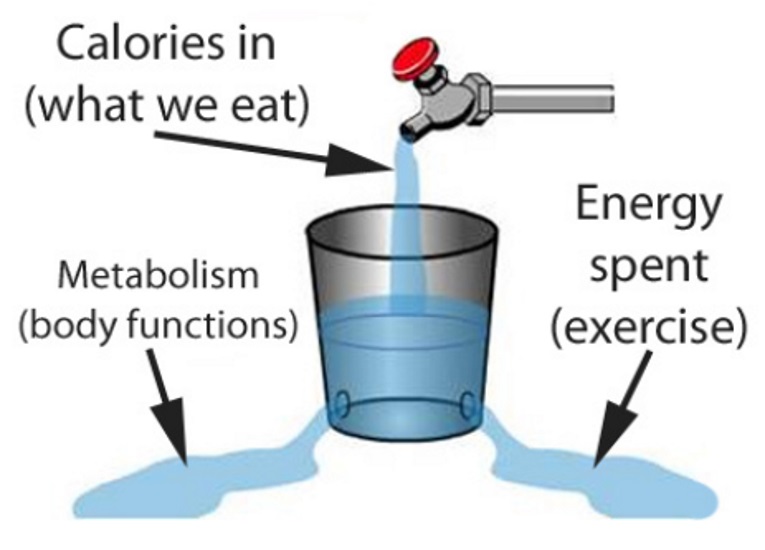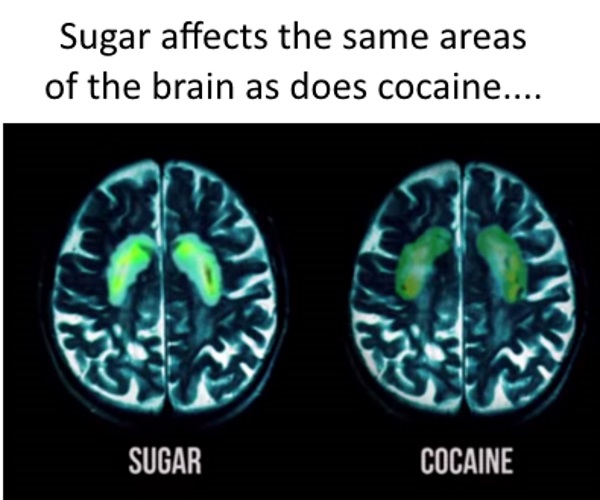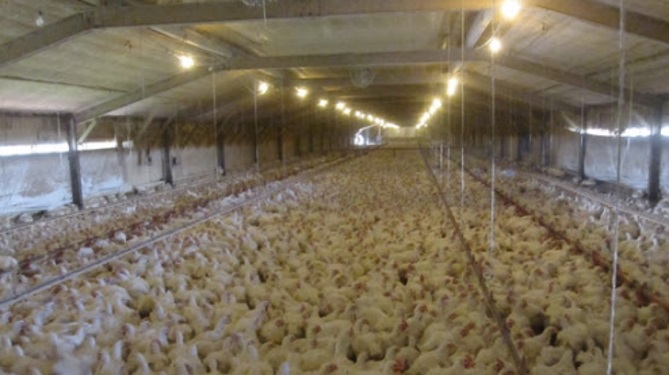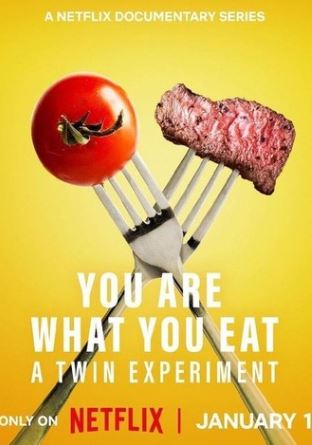Weight Loss: My Thoughts...
Losing weight is a great challenge, and there are plenty of reasons to do so, like to decrease the risk of, among other problems like diabetes, high blood pressure, heart disease, arthritis, sleep apnea, gout…
but it’s hard to do.
Clearly, if I had the answer, I wouldn’t be in the doctoring business, as I’d be a billionaire by selling the solution. However, although I don’t have one magic pill to solve this problem, I do have some thoughts based on many years of dealing with this issue.
A simple way to look at body weight is to look at the body like a bucket, where body weight reflects the balance of the intake and the outflow, of what we eat (calories in) vs. how much energy we burn up, by either exercise, or by our basic metabolism (calories out).
In a system out of balance, the bucket gets more and more full.
However, there may be more to the story.

Basic Principals:
1) Change is needed. A patient looking to lose weight has to be willing to change. Someone who is overweight has two options: do something, or do nothing. You can’t do the same thing and expect a different result.
2) Food journal . To evaluate your current diet, a good first step is to write a food journal, and document everything that you eat for an average day. We can look at what you are eating and I can offer some thoughts, but I will note here that most patients are surprised about what is revealed by their food choices.

3) Sugar/Carbs. A major consideration is sugar, which is in everything in the form of simple sugars or refined carbohydrates. The food industry knows how sugar affects us, and how we will keep coming back for more. Sugar affects our brains like a drug, and when our system is overloaded with sugar, we store it, and paradoxically still feel hungry even after ingesting large quantities. In this link, which was the source of the brain scan images, the areas of the brain that are affected by sugar are similar to those affected by cocaine. On this webpage are listed many foods that have huge amounts of sugar.
For info on the Sugar Busters diet, click here. For article "How to Stop Eating Sugar," click here.
There is a fairly amusing video on youtube (click here) about quitting sugar.
For another video of a TED talk from Dr. Robert Lustig, click here.
The problem with carbs has to do with blood chemistry. Although they may not look like sugar, the simple carbs in our diet like bread and corn are converted into simple sugars when they are digested. The net effect on your metabolism between eating a bagel and a bag of candy is not very different. The sugars stimulate the production of insulin, which causes fat cells to go into storage mode leading to weight gain. Also, fewer calories are available to feed the body, so we still feel hungry.
4) Animal products. It might be wise to look at your intake of animal products. I am not advocating that one has to be come a vegetarian, although there are many reasons to do so, but realistically, how much do you know about, or how much can you control about, what happens in the raising and the processing of the animals and their by-products that you eat? Did you know that 80% of antibiotics are given to animals? Do you think there is no effect of the hormones they give animals to make them grow quickly? Have you heard the
stories about young girls starting to develop secondary sexual characteristics, like developing breasts, as early as age 8?
Additionally, when you go to the grocery store and see the meat products nicely wrapped in the cellophane packages, you might want to be aware of what goes on to bring that product to market, its effect on the animal, and it’s effect on the environment. You can choose to not think about these issues, but that doesn’t mean there are no effects of these choices.
For those who subscribe to Netflix, there was a recently added documentary (Ianuary 2024) that studied identical twins to look at the effects of diet, and also the effects of diet choices on our planet. I found this three episode show to be very enlightening and it made a lot of senst to me.


5) Fiber. Most patients need more of it in their diet. A good ballpark estimate is that people need at least 35 grams a day. Aside from helping your GI tract remain more healthy, the foods are digested more slowly with less blood sugar spikes, and people can feel full with healthier foods. There is a link here to a webpage that lists many high fiber foods.
6) Cold Water. There are several good reasons to make cold water your beverage of choice. Increasing your intake of water helps to flush out your system, including any toxins you have ingested. By drinking water instead of sugar drinks, you can avoid all the sugars and empty calories for the reasons noted above. Even diet sodas don’t alleviate health risks, and may pose risks of their own. Additionally, diet sodas have no nutritional value. Finally, since one of the metabolic functions that requires energy expenditure is maintenance of body temperature. By drinking cold water, some additional energy is spent in counteracting the cold.
7) Get moving. A good general rule for health is to do some sort of exercise frequently. A good target is 150 minutes per week. Any exercise is better than none, and for patients with painful bones and joints, often there are alternatives, like a stationery bike, walking, or joining a gym with a pool. There are many benefits to exercise including improved bone health, better healing, better mental capacity, improved balance, and increased life expectancy, aside from the common benefits of better cardiac, pulmonary, and metabolic health.
For what it is worth, there is a movie, that can usually be seen through various online sources like Netflix called Forks Over Knives, which outlines various dietary recommendations that make sense to me. Even if you incorporate some of the ideas they offer, there would probably be a significant benefit. My interpretation of the title is that by eating right (forks), one can avoid surgery (knives).
Other links:
Video on the benefits of cooking for yourself.
Issues with processed foods.
Impact of meat production on the environment.
Factory farming basics.
Seven steps to reduce sugar cravings.
